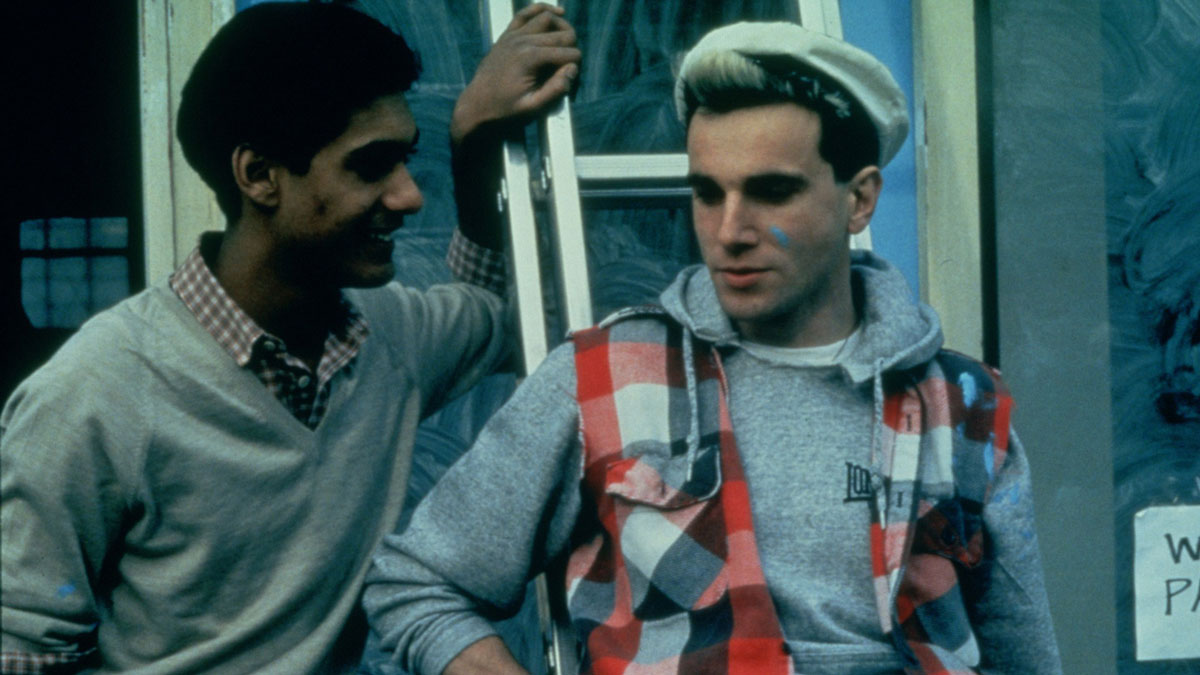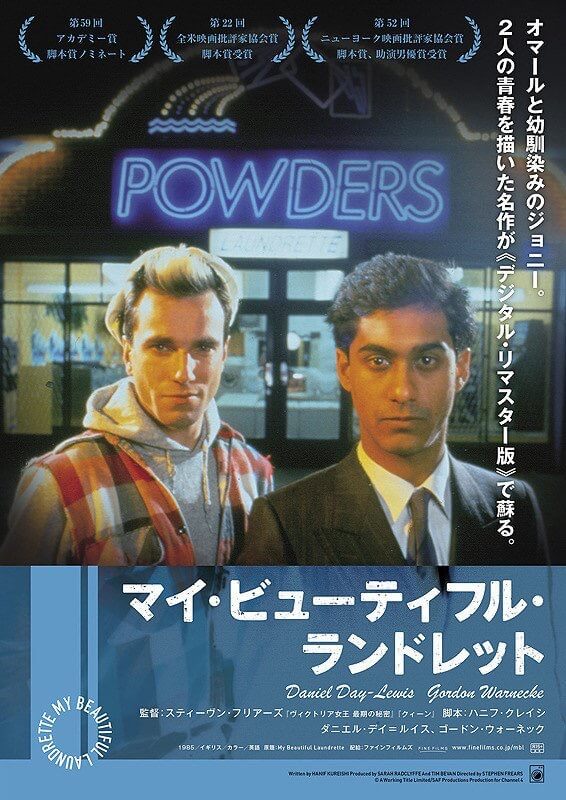
“My Beautiful Laundrette” The problems of the coming modern world reflected in London in the 1980s
2019.09.22
A movie that predicted the current era
"My Beautiful Laundrette" was a big hit in Japan in the 80s, but now it feels a little outdated. I went to the theater to see it again and see what it was like. I also wanted to see Daniel Day-Lewis in his younger days.
And 10 minutes into the film... My worries were quickly blown away. The screen at Ebisu Garden Cinema in Tokyo is large for a mini-theater, and the images are realistic. This time, the film was digitally remastered, so the image quality has improved. Just like before, I was drawn into the world of the film.
What surprised me was that, even though the story is set in the UK in the 1980s, it contains a poignant theme that is relevant to the UK today, which is in the midst of a Brexit crisis. The number of immigrants is on the rise, causing social unrest. Far from being outdated, this image, which was depicted 30 years ago, is a problem that is relevant to the present day.
In fact, when I rode the London Underground for the first time in a while two years ago, I remember being surprised at how racially diverse the country was. The country was also racially diverse in the 1980s when I visited the Frears family, but the situation is different now, and it seems that the range of races has expanded even further. In that sense, the issues surrounding immigration in "My Beautiful Laundrette" could be said to have predicted the world to come (I believe that this immigration issue will not be ignored in Japan in the future).

Omar is an innocent young man who dreams of becoming a successful businessman like his uncle, but his father, a journalist, wants him to go to college and acquire an education rather than just working at a laundry. The conflict between materialism and education is entrusted to the conflict between his uncle and father, but the two share a sense of love as brothers (in today's world, where even politicians prioritize the economy, the contrast between his idealistic father and his uncle who faces reality is even more poignant).
The relationship between Omar and Johnny is also full of contradictions. Omar admires his childhood friend Johnny, and Johnny must have always liked him, but Johnny once participated in an anti-immigration demonstration. Even though they love each other, there is also something dangerous about them.
The uncle says, "I feel both love and hate for the country of England," but love and hate are also intertwined in complex ways in human relationships. The uncle's daughter leaves home to escape the constraints of her beloved family, and the uncle's mistress gradually becomes unable to bear the idea of sacrificing his family. There is no such thing as perfect happiness, and even if there are modest dreams and small loves, they are not eternal. Frears's production shows the light and shadow of such human society with a solid and sturdy performance.
There are some parallels with the working-class films of director Ken Loach, whom Frears admires, but Frears is more artisanal, with elements of crime films that would later lead to the thriller masterpiece Grifters . The music (by Stanley Myers and Hans Zimmer under the name Ludus Tonalis) is also mysterious, with the rhythm of the laundry's bubbling water giving the film an offbeat feel.
Originally made for television, it might seem like a good fit for a TV-sized screen, but the complex psychological movements can only be fully appreciated when viewed on a large screen. Through the tense relationship between Omar and Johnny, "My Beautiful Laundrette" asks the audience about the state of the world today. It's a small, low-budget film, but I was struck by the hidden power of it.
Text: Sawako Omori
Movie journalist. His books include "Lost Cinema" (Kawade Shobo Shinsha) and other books, and his translations include "Woody" (by D. Evanier, Kinema Junposha). Contributes to magazines such as ``Weekly Women'', ``Music Magazine'', and ``Kinema Junpo''. A research book based on the web series, ``Mini Theater Revisited,'' is also scheduled to be published.
"My Beautiful Laundrette"
Currently showing at YEBISU GARDEN CINEMA, Tokyo

